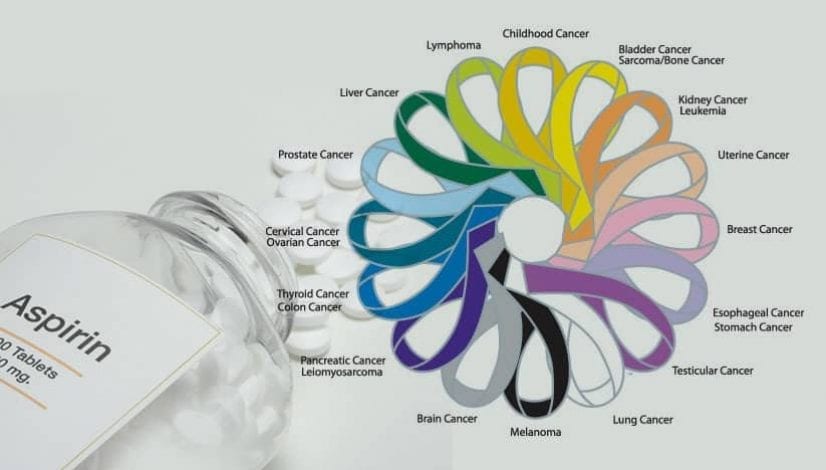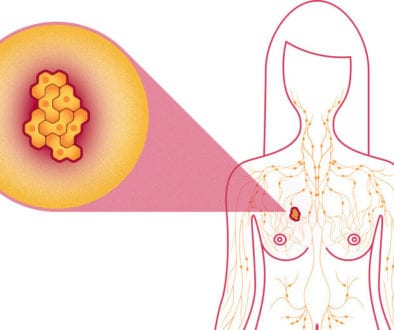Could aspirin play life-saving role in cancer?
Aspirin and its Role in cancer!!
Aspirin, acetylsalicylic acid (ASA) is a commonly used drug for the treatment of pain and fever and has both anti-inflammatory and antipyretic effects, used in the prevention of blood clots stroke, and myocardial infarction. Aspirin has been known for its ability from inhibiting platelet aggregation to relieve pain, fever, inflammation, headache, tooth pain and so on. Aspirin has been now widely used for the prevention of cardiovascular diseases (CVD), adults around the world are reported to take aspirin daily. However, a lower dose of aspirin has been recommended for use, higher doses can be prescribed for severe conditions like rheumatic fever or rheumatic arthritis.
As aspirin is being used to treat different conditions, but can it be used to treat cancer too? The answer may be YES!!!!
Studies revealing the same
Various cancer research, observational studies have revealed that the long term use of aspirin may decrease the risk of various cancers, including the most common cancers like breast, lung, colorectal (CRC), prostate, liver, esophageal, skin and ovarian cancers. Since then aspirin has been studied largely for its chemotherapeutic properties and its potential effects. It might have both chemopreventive and chemotherapeutic effects, it is not yet prescribed for cancer treatment. Aspirin is classified as NSAID (a non-steroidal anti-inflammatory drug) whose mechanism of action is by inactivating both isoforms of the COX enzymes (COX-1 and COX-2) thus bringing out its anti-inflammatory, antipyretic and analgesic effects. How exactly aspirin brings out its anticancer effects is yet to be explored.
Clinical and laboratory experiments have shown that aspirin induces apoptosis and inhibits angiogenesis in cancer cells. United States Preventive Services Task Force (USPSTF) in 2007 recommended routine use of aspirin for the prevention of CRC which included a low dose for primary prevention of CVD and CRC in adults. Data from CAPP2 randomized controlled trial where a high dose of aspirin was tested in individuals with Lynch syndrome, it was observed that individuals given aspirin had around 60% reduction in risk of developing colorectal cancer with respect to placebo.
Another cohort studies lead by Dr. Chan at Harvard Medical School, suggests the use of aspirin for more than 6 years cuts down the risk of colorectal cancer or any type of gastrointestinal cancer by 15-20%. Thus regular use of aspirin could prevent colorectal cancers and gastrointestinal cancers. Although there are shreds of evidence from clinical trials and laboratory experiments for use of aspirin in colorectal cancer prevention lacking enough data for other types of cancer. There is more to aspirin which may be beyond what has been studied and requires deeper knowledge and laboratory experiments to come to defined conclusions.
There are other NSAIDs like ibuprofen which have also been studied for cutting down the risk of other forms of cancer. Just like any other medication aspirin too comes with some risk, like increasing the risk of internal bleeding, while the risk is lower for individuals taking low doses of aspirin. Ongoing clinical trials are now focusing on different doses of aspirin for reducing the recurrence and increasing the survival of newly diagnosed cancer including colorectal cancer, gastroesophageal cancer, breast cancer, and prostate cancer (e.g., the Add-Aspirin trial). Ongoing clinical trials might provide the answers about the use of aspirin and how it is likely going to benefit the individuals, and what role it might play in reducing the risk of cancer. Further research is required to finalize aspirin to be prescribed as a cancer prevention drug, seeing that aspirin has been used daily for overall benefit but its side effects cannot be ignored.
Disclaimer: The views and opinions expressed on this site are solely those of original authors and other contributors. These views and opinions do not necessarily represent those of Positive Bioscience or staff, and/or any/all contributors on this site.
References:
Alfonso, L., et al. " Molecular targets of aspirin and cancer prevention." British journal of cancer 111.1 (2014): 61.
Elwood, Peter C., et al. " Aspirin in the treatment of cancer: reductions in the metastatic spread and in mortality: a systematic review and meta-analyses of published studies." PLoS One11.4 (2016): e0152402.
https://www.drugbank.ca/drugs/DB00945
https://www.medicalnewstoday.com/articles/161255.php
https://www.cancer.gov/about-cancer/causes-prevention/research/aspirin-cancer-risk
https://www.medicalnewstoday.com/articles/323206.php
https://www.nhs.uk/news/cancer/daily-low-dose-aspirin-may-help-combat-cancer/
https://medicalxpress.com/news/2018-09-aspirin-valuable-role-additional-treatment.html
https://www.cancer.ca/en/research-horizons/3/1/3/could-aspirin-prevent-cancer/
Patrignani, Paola, and Carlo Patrono. " Aspirin and cancer." Journal of the American College of Cardiology 68.9 (2016):
967-976.
Patrignani, Paola, and Carlo Patrono. "Aspirin, platelet inhibition and cancer prevention."Platelets 29.8 (2018): 779-
785.
Phase 3 – NCT02804815 – A Phase III, Double-blind, Placebo-controlled, Randomised Trial Assessing the Effects of Aspirin on Disease Recurrence and Survival After Primary Therapy in Common Non-Metastatic Solid Tumours Tsoi, Kelvin KF, et al. " Long‐term use of low‐dose aspirin for cancer prevention: A 10-year population cohort study in Hong Kong." International journal of cancer 145.1 (2019): 267-273.
By~ Kartik Sharma




